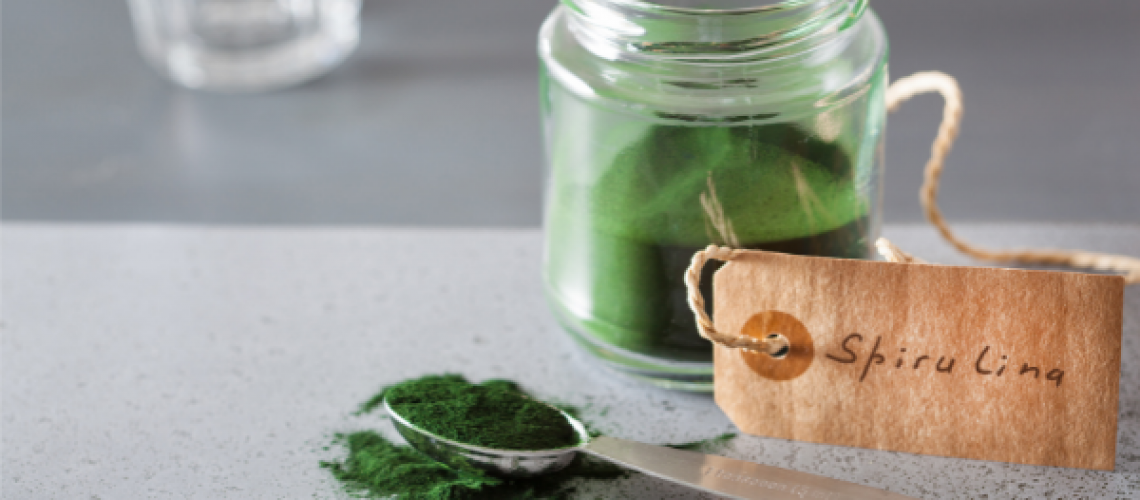Free Shipping Australia Wide
Made with under the sun daily.
Free Shipping Australia Wide
Made with under the sun daily.

High protein and rich in antioxidants, vitamins, minerals and essential fatty acids, spirulina boosts the immune system, detoxifies and strengthens the body and also helps to lose weight. It is now available in fresh form (freshly frozen) and is tasteless and odourless.
Spirulina is an alkaline freshwater blue-green colour microalgae shaped spirally which is growing very quickly as soon as the temperature exceeds 30 degrees. The Aztecs consumed spirulina to make up for the lack of protein in their diet. Spirulina was also part of the traditional diet in Chad where it was also “rediscovered” in the sixties by the Belgian botanist Jean Léonard.
Exceptionally rich in protein (about 65 – 71% on average), Spirulina has major ecological advantages compared to animal protein sources (livestock and poultry …) and even compared to other vegetable sources of protein. Indeed, it provides 20% more protein than soy (about 40% on average) and its production require less water and less energy. Very sustainable.

Needless to say, proteins are essential to life. Protein sources lean as Spirulina facilitate weight loss due to their properties as an appetite suppressant in particular. In addition, sufficient protein intake is necessary to preserve muscles and prevent softening of the skin during dieting.
Spirulina does not only have “anti-kilogram” properties. It also helps fight infections and anaemias, detoxify the body (heavy metals in particular) and regulate the female menstrual cycle and blood cholesterol levels. It is also known for its powerful antioxidant qualities.
It is packed with essential nutrients:
In general, it is recommended to take spirulina in either glass of water, a glass of juice or as another ingredient with your daily smoothie (Simply add it as another ingredient).
Because spirulina is available in the fresh frozen form, spirulina can be easily integrated into the daily diet and especially sauces, spreads (hummus, tahini, guacamole …), gazpachos, vegetable juices and soups. The adventurous will even put in creams, ice creams and other desserts. The special taste of Spirulina does not always pleasing, however, fresh spirulina is tasteless & odourless. Whatever you add it to it is never taking over the flavour and doesn’t smell bad.
Keep in mind that no-cooking preparations will better preserve the vitamins and the other bioavailable essential nutrients.
How much pure fresh spirulina can you consume to feel the beneficial effects?
Generally, the recommended spirulina dose is one tablespoon of soup per day (15-20 g).
It is recommended to use spirulina, in particular during the following cases, detox, slimming diet, protein deficiency, vegetarian or vegan diet, detoxification treatment, intense physical activity, bodybuilding, immune fragility, ageing, disturbed female cycle, water retention, anaemia, high cholesterol and cardiovascular risk.
Fresh Spirulina capsules are available at 150 capsules per pack.

Founded in Southeast QLD and located on Certified Organic farmland, we are an Australian-made Fresh Spirulina commercial farm. We are subject to the Australia New Zealand Food Standards Code and produce fresh Spirulina using food-grade nutrients only, pay attention to the freshness and health of our spirulina.
You can visit us at our social media pages at facebook.com & instagram.com
Founded in Australia, Southeast QLD, Fresh Spirulina is a local biotech health company conducting research and innovation of micro & macroalgae as plant-based food products.
By appointment only
Monday - Friday: 08:00am - 16:30pm
Saturday - Sunday: Closed
'Let's Encrypt' SSL certificate installed on this website
*Disclaimer: Spirulina is Food, not drugs or medicine. Statements made, or products sold through this website, have not been evaluated by the Therapeutic Goods Administration (TGA) Australia. They are not intended to diagnose, treat, cure or prevent any disease. Read More »
All rights reserve © 2023, Fresh Spirulina Australia